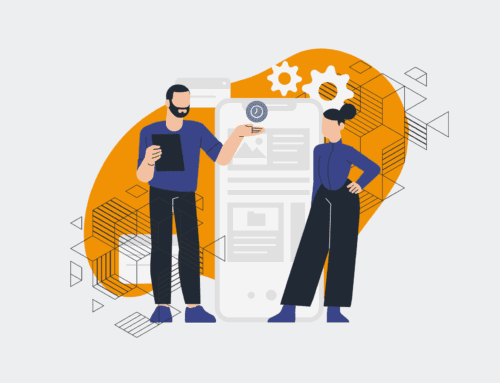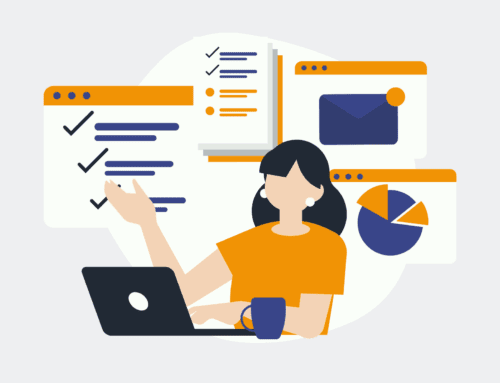Preparing Your Team for AI: Navigating Change Management in HR Automation
The conversation around Artificial Intelligence in Human Resources has shifted from speculative future to immediate imperative. Companies are rapidly adopting AI-powered tools to streamline recruitment, automate onboarding, enhance employee experience, and optimize various operational aspects. Yet, the true success of these technological advancements hinges not just on the software’s capabilities, but on the human element – specifically, how effectively your HR team navigates and embraces this significant change. At 4Spot Consulting, we’ve seen firsthand that without a robust change management strategy, even the most transformative AI initiatives can falter, leading to resistance, disillusionment, and missed opportunities.
The Inevitable Shift: Why AI in HR Demands Proactive Change Management
The introduction of AI into HR operations is more than just adopting a new tool; it’s a fundamental reimagining of roles, processes, and the very nature of HR work. This shift naturally triggers a range of emotions among team members, from excitement about efficiency gains to apprehension about job security or the perceived complexity of new systems. Ignoring these human reactions is a critical mistake. Proactive change management isn’t about simply announcing a new system; it’s about fostering understanding, building trust, and empowering your team to become active participants in the transformation. It involves addressing concerns head-on, clarifying AI’s augmented role rather than its replacement role, and demonstrating tangible benefits for individual HR professionals, not just the organization.
For high-growth B2B companies, the imperative is even greater. The pace of change is faster, the demand for agility is higher, and the cost of operational inefficiencies is more pronounced. Integrating AI without proper change management can create new bottlenecks, erode morale, and ironically, slow down the very processes it was meant to accelerate. Our OpsMesh framework emphasizes that technology integration must be coupled with human integration for sustainable success. This means understanding the current state of your HR operations, mapping out the impact of AI, and meticulously planning the transition, ensuring that every team member feels supported and equipped.
Beyond the Hype: Defining AI’s Role in HR
A key aspect of effective change management is demystifying AI. For many, AI still carries a futuristic, often intimidating, connotation. It’s crucial to clearly articulate what AI will and won’t do within your HR department. AI in HR isn’t about replacing human intuition, empathy, or strategic thinking. Instead, it’s designed to automate repetitive, data-heavy, and time-consuming tasks. Think resume parsing, initial candidate screening, scheduling interviews, answering FAQs, and data analysis. These are the low-value, high-volume tasks that often consume valuable time from high-value employees, hindering their ability to focus on strategic initiatives like talent development, employee engagement, and culture building.
Laying the Foundation: Communication, Education, and Empathy
Successful change management begins with clear, consistent communication. From the outset, articulate the ‘why’ behind the AI adoption. Frame it not as a cost-cutting measure that threatens jobs, but as an opportunity to elevate HR’s strategic impact, improve efficiency, and free up professionals for more meaningful, human-centric work. Transparency about timelines, expected impacts, and the support available is paramount. Educational workshops, led by internal champions or external experts like 4Spot Consulting, can break down complex concepts into digestible insights, demonstrating how AI tools will integrate into daily workflows using systems like Make.com.
Furthermore, empathy is non-negotiable. Recognize that fear of the unknown is natural. Create open forums for questions, concerns, and feedback. Actively listen to your team’s anxieties and address them with practical solutions and reassurance. Share success stories, even small ones, from early adopters or pilot programs. Highlight how AI has already helped other HR teams, perhaps even referencing anonymized examples similar to how an HR firm saved 150+ hours monthly by automating resume intake.
Empowering Your People: Training, Reskilling, and New Roles
As AI automates transactional tasks, the nature of HR roles will evolve. This isn’t a threat but an opportunity for growth. Invest heavily in comprehensive training programs that go beyond simply teaching how to click buttons. Focus on reskilling your team in areas where human intelligence remains irreplaceable: strategic workforce planning, complex problem-solving, emotional intelligence, and advanced data interpretation. Show them how to leverage AI-generated insights to make better decisions, rather than just relying on raw data. This might involve training on using CRM systems more effectively, understanding analytics dashboards, or even developing new skills in prompt engineering for generative AI tools.
Consider the emergence of new roles or expanded responsibilities within the HR team, such as “AI Facilitator,” “Automation Specialist,” or “People Analytics Strategist.” These roles can act as internal experts, guiding colleagues and continuously optimizing the human-AI collaboration. This proactive approach to skill development not only assuages fears but also empowers your team, transforming them from passive recipients of change into active drivers of innovation.
The 4Spot Approach: Strategic Integration, Not Just Implementation
At 4Spot Consulting, our philosophy is rooted in strategic-first automation. We don’t just build systems; we partner with you to understand your core business problems, design solutions that deliver measurable ROI, and ensure your team is prepared for the transition. Our OpsMap™ diagnostic identifies not only the technical opportunities for AI and automation but also the human elements required for successful adoption. We help you implement tools like Make.com to connect your existing SaaS systems, creating a “single source of truth” that reduces manual errors and frees up your HR professionals.
Preparing your team for AI in HR is a marathon, not a sprint. It requires leadership commitment, transparent communication, continuous education, and a genuine investment in your people. When managed strategically, AI becomes a powerful ally, enabling HR to move beyond administrative burdens and truly become a strategic partner in your organization’s growth. By embracing this change proactively and empathetically, you not only integrate cutting-edge technology but also cultivate a resilient, adaptable, and forward-thinking HR department ready for the future.
If you would like to read more, we recommend this article: The Automated Recruiter: Unleashing AI for Strategic Talent Acquisition








